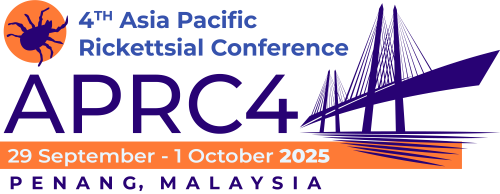Symposium Session by TIDREC
From Surveillance To Vaccines: Towards A Holistic And Strategic Approach In Strengthening Pandemic Preparedness
The unprecedented global impact of recent pandemics - from the 2009 H1N1 influenza outbreak to the COVID-19 crisis - has exposed critical gaps in national health systems, particularly in areas of pathogen surveillance, vaccine and diagnostic development, and translation readiness. These challenges reaffirm the urgent need for a robust and integrated pandemic preparedness strategy that aligns with the One Health approach, recognizing the inextricable link between human health, animal health, and environmental health. This symposium presents a landmark initiative designed to strengthen Malaysia's pandemic preparedeness through a holistic, data-driven, and translationally empowered framework. At the heart of this initiative is a 13-Work Package (WP) program collaboratively implemented by researchers across three leading Research Universities.
Through this transdisciplinary effort, the program addresses thiee critical gaps:
- The absence of integrated baseline data on novel, emerging, and re-emerging pathogens and their reservoirs.
- Limited access to adaptable platform technologies for rapid development of diagnostics, vaccines, and therapeutics.
- Inadequate talent and infrastructure to support end-to-end translation from laboratory discovery to certified, deployable solutions.
Objectives:
This symposium brings together scientists, public health professionals, industry partners, and policy stakeholders to:
- Present a comprehensive One Health-based national R&D framework for pandemic preparedness.
- Showcase the contributions of the 13 Work Packages, from environmental surveillance and genomic integration to vaccine and diagnostic platform development.
- Share baseline findings and data pipelines that will inform future disease forecasting, early warning systems, and vaccine target identification
- Demonstrate progress in platform technologies including in vitro diagnostics, human and animal vaccines, therapeutic candidates, and exosorne-based vaccine delivery systems.
- Discuss strategies for enhancing translational research, including facility upgrades, quality management systems, and commercialization pathways for infection control technologies.
- Strengthen collaboration across sectors - academia, industry, and government - to align with national priorities such as the National Vaccine Development Roadmap and Malaysia's broader pandemic preparedness and biosecurity agenda.
This symposium aims not only to disseminate findings and foster knowledge exchange but also to catalyze long-term capacity building and policy developer. Ultirnately, this program aspires to position Malaysia as a leader in regional pandemic response, capable of acting swiftly and independently in the face of emerging global health threats.
| Time | Session |
|---|---|
|
11:00
11:20
|
|
|
11:20
11:40
|
|
|
11:40
12:00
|
|
|
12:00
12:20
|
|
|
12:20
12:30
|
